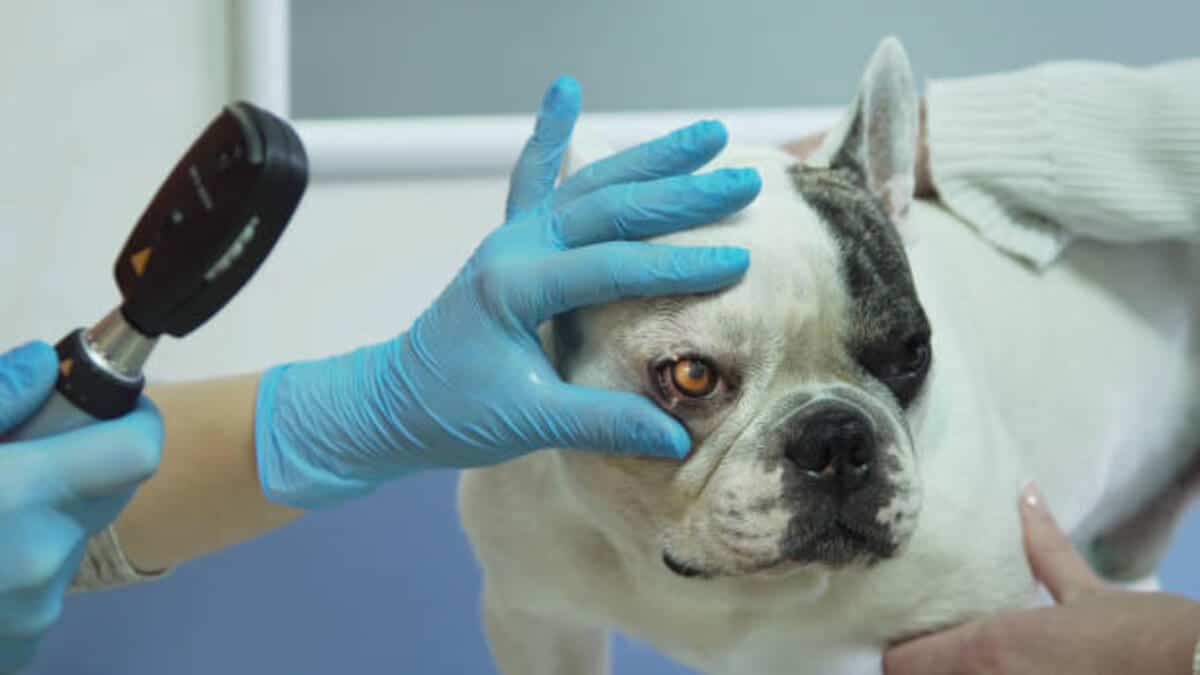How To Become A Veterinary Ophthalmologist
Similar to people, animals require care and medical attention when they are ill or injured. We have doctors that are experts in the field as a result. They are frequently referred to as vets or vet doctors.
We do, however, have individuals who focus on caring for animal eyes. They have the skills to deal with various diseases and wounds that could harm an animal’s eyes.
Also, check out How to Become an Automobile Engineer.
In this post, our attention is on veterinary ophthalmologists, highly skilled medical professionals who diagnose and treat eye conditions in animals. We’ll examine how to become one, what they do, their abilities, and more.
Advertisement
What is Veterinary Ophthalmology?
Veterinary science and ophthalmology are the two branches of study that make veterinary ophthalmology a unified field. Veterinary science concerns the welfare and health of animals, while ophthalmology is a branch of medical science concerned with the care of the eyes and the treatment of eye diseases.
Combining the two, veterinary ophthalmology focuses majorly on animal eye care. It involves the treatment of eye diseases and defects and surgical operations to care for the eyes.
Who is a Veterinary Ophthalmologist?
It is easy to deduce who a veterinary ophthalmologist is from the prior explanation of what veterinary ophthalmology entails. A veterinary ophthalmologist is a certified and trained professional who qualifies as a vet specializing in the eye care of animals.
How To Become A Veterinary Ophthalmologist
This section highlights the path you can take to become a veterinary ophthalmologist. You must know that it is possible to become a veterinarian and then advance to a veterinary ophthalmologist by taking up courses in ophthalmology, or you can follow the other way around.
Advertisement
Let us examine the educational path to becoming a professional veterinary ophthalmologist.
First, you need to get a degree from an institution that offers courses on veterinary science or any related system. Also, it is preferable to go to a veterinary college because the dedication to the field is more compared to a public institution.
However, it is expensive, and the competition is high. Whether you enroll in a public university or a veterinary college, you must finish the outlined courses and practical classes. Finishing the institution with flying colors is a significant step in the journey.
The following action step is to choose an advance to major in, which, in your case, is in ophthalmology. In this area, you will learn the basics and advanced knowledge of the ocular structure and functions of the various components of the system.
Also, one will acquire surgical skills at this stage. Completing the stage means you are halfway to becoming a veterinary ophthalmologist. However, this is not the end of the road, as the following line of action is to go residency.
You will be a resident veterinary ophthalmologist for three to four years, acquiring hands-on experience in the field. As a result of this training period, one can easily build work experience and get a job if lucky.
In addition, you also get to test your knowledge on several real-life cases with different animals, plus the ability to use various surgical instruments and substances.
The end of the residency program is marked by taking an examination in two parts – the written examination and performing surgery as a case study—acing the two parts of the test guarantees that you have finished the residency program.
You are almost done and what is left is to get a license that guarantees you to practice as a certified veterinary ophthalmologist. In some regions, you may be required to take a test or examination before you get the license.
Also, check out How to Become a Cloud Technologist.
How long does it take to become a veterinary ophthalmologist
The question of how long it takes to become a veterinary ophthalmologist lies in the heart of those aspiring to become one day. The answer is that the journey takes up to 10 – 12 years, depending on the individual. However, it is essential to know that in this field, one cannot stop learning; you need to always be at the top of your game now and then.
What does a veterinary ophthalmologist do?
Veterinary ophthalmologists perform the following duties as part of their daily and overall tasks.
Diagnosis
Diagnosis is one of the frequent things that veterinary ophthalmologists do in their work. They perform various assessments with different tools and procedures to clearly understand the animal’s eye conditions.
Furthermore, they use the results to determine the extent of the state and what medical attention is best for treating the case.
Surgical Operations
When required and necessary, they carry out surgical operations on the eyes of the victim (animal). They monitor the recuperation of the animals after the surgery and provide recommendations for the animal owners on how best to manage their condition till they recover properly.
Keep and Maintain Medical Records of Animals
For every animal they treat, it is necessary to keep and maintain records of the medical histories of the animals. The records should detail the conditions of the animals, the medications, and various observations before and after treatment. The records are useful for future reference.
Other responsibilities of a veterinary ophthalmologist include
- Addressing questions and complaints of the pet owners. Also, they question them to get a view of their observations on the signs and symptoms of the animal’s condition.
- Offer consultation services and provide recommendations.
Skills
A veterinary ophthalmologist should possess the following skills (soft and hard skills) to perform exceptionally.
Communication Skills
A veterinary ophthalmologist must be fluent in verbal communication In their relationship with the pet owners and their colleagues. In addition, they must also be skilled in written communication too.
Empathy
The profession requires empathy when attending to the animals and their owners.
Dexterity and Eye Coordination
Dexterity is a non-negotiable skill that a veterinary ophthalmologist must possess because of surgical procedures. The ability to use the hands skilfully, together with good eye coordination, helps handle the delicate parts of the visual system.
Critical Thinking
The ability to think deeply and come up with possible solutions for both mild and sensitive cases is one of the significant major attributes of an excellent veterinary ophthalmologist.
Time Management Skills
The ability to efficiently manage their time attending to the pet owners and the victims (animals) is a valuable skill for a veterinary ophthalmologist.
Other skills include:
- Excellent Organization Skills
- Proficiency in the use of surgical equipment
- Good decision-making skills
Work Environment
A veterinary ophthalmologist can work for or in the following settings
- Vet Clinics and Hospitals
- Research Facilities
- Zoos
- Sanctuaries for animals
Salary
According to Salary.com, the total salary package of a veterinary ophthalmologist is between $92,749 to $135,028 per year. The average income is $112,222 per year.
Final Notes on How To Become A Veterinary Ophthalmologist
Animals are a huge part of our world, especially pets; thus, they deserve medical attention when it affects their health.
If you are interested in becoming a vet, you can decide to specialize in the treatment of the ocular system and become a veterinary ophthalmologist. The piece talks about how one can become one and some beneficial information.
Before you go, check out How to Become a Hospital Chaplain.






